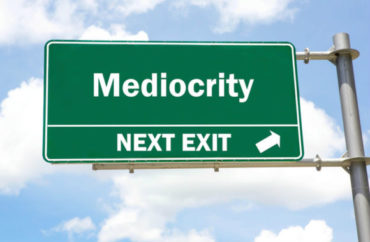
A boon for schools whose graduates can’t repay their loans
A disproportionate number of minority students attend law schools whose graduates don’t pass the bar exam within two years.
Rather than ask why those law schools should keep their accreditation – along with the stream of borrowed money their unemployed graduates won’t be able to repay – the American Bar Association has decided to continue its soft bigotry of low expectations.
Inside Higher Ed reports that diversity-focused legal educators won the day at the ABA House of Delegates, which strongly voted against the new accreditation standards proposed by the accreditor’s legal education section.
It would have required three in four graduates to pass the bar within two years in order for law schools to keep their accreditation.
The chairs of “ABA Goal III entities” expressed their opposition to the proposed rule in a letter earlier this month, saying it would have an “adverse impact upon diversity within legal education, the legal profession, and the entire educational pipeline.” (Goal III obliges the ABA to “eliminate bias and enhance diversity,” in part by promoting “full and equal participation” by “all persons.”)
The likely result of the rule’s adoption “is that law schools facing pressure to increase bar passage to maintain accreditation will adjust admissions standards in a way that decreases the diversity of their student bodies,” particularly those in California, they wrote:
[T]he potential number of schools that may fail to satisfy proposed Standard 316 in both 2016 and 2017 could include five of the six [historically black law schools], all three of the Puerto Rican schools, and 11 of the 21 California schools. There are also additional schools with significant populations of minority students [defined as 30 percent or more “students of color”]. …
In California, which produces an eighth of the graduates nationwide, the firsttime [bar exam] pass rate for graduates of California ABA-accredited law schools dropped 6 percentage points from July 2017 to July 2018 (70% to 64%). …
We urge that a disparate impact study take into account the future trends of bar performance, since schools will be evaluated on their performance in the future.
The Goal III entity chairs would rather talk about getting rid of the bar exam as “the primary vehicle for obtaining a license to practice law.” It may no longer be “effectively measuring and keeping pace with the skills that lawyers will need to practice law today and in the future,” and artificially suppressing “the diversity of the legal profession.”
The letter was signed by Matthew Archer-Beck of the Council for Diversity in the Educational Pipeline; Helen Kim of the Commission on Racial and Ethnic Diversity in the Profession; Lillian Moy of the Coalition on Racial and Ethnic Justice; Stephanie Scharf of the Commission on Women in the Profession; Robert Gonzales of the Commission on Disabilty Rights; Victor Marquez of the Commission on Sexual Orientation & Gender Identity; and Richard Pena of the Commission on Hispanic Legal Rights & Responsiblities.
The refusal to raise accreditation standards won’t stop pressure on law schools to stop admitting students who can’t pass the bar, regardless of their skin color.
Tammi Rice, vice president of the Kaplan Bar Review, told Inside Higher Ed that “bar passage rates in many parts of the country are at record lows”:
This has left thousands of law school graduates mired in debt, with the inability to practice law. … Keep in mind that all of the law schools that have recently shuttered or are on the verge of closing down have something in common: a low bar passage rate.
Read the article and letter opposing the proposed rule.
MORE: State bar associations consider punishing lawyers for misgendering
IMAGE: northallertonman/Shutterstock
Like The College Fix on Facebook / Follow us on Twitter






Please join the conversation about our stories on Facebook, Twitter, Instagram, Reddit, MeWe, Rumble, Gab, Minds and Gettr.